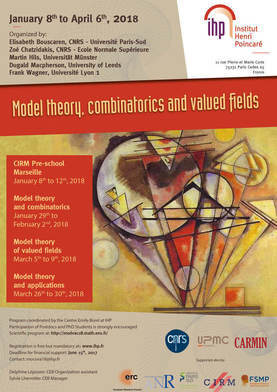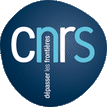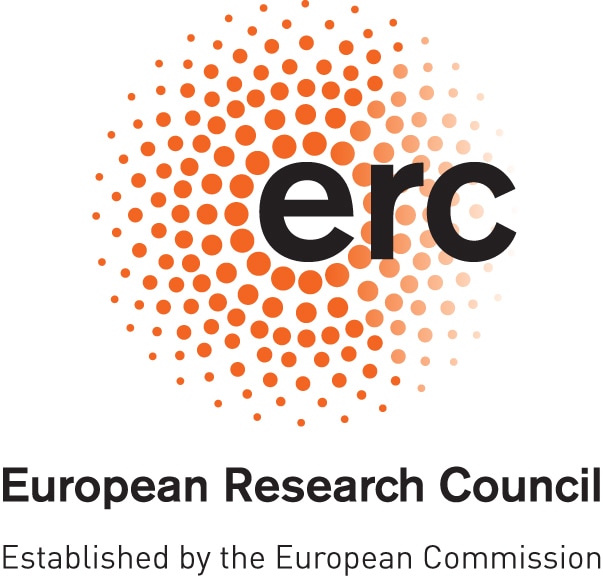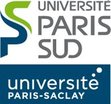|
RESEARCH SCHOOL / ECOLE DE RECHERCHE
Model Theory, Combinatorics and Valued Fields Scientific Committee & Organizing Committee Zoé Chatzidakis (CNRS, ENS Paris) |
|
The Institut Henri Poincaré will host a trimester entitled Model theory, combinatorics and valued fields during the period 8 January – 6 April 2018, and this research school marks the beginning of the trimester.
The main themes for this programme aim to develop both the internal model theory of tame structures and their recent applications. The main aim of the research school is to prepare its participants to the research themes of the trimester programme; its courses should however be of independent interest. The programme at the IHP aims to bring together researchers on two main topics: The unifying theme behind those two topics is the pure model theory involved. In (ii) there have already been extensive interactions beyond model theory, but (i) is very recent, with contacts just starting to develop. In addition to this opening school, the programme at the IHP will involve three workshops/conferences, as well as some courses and seminars. One conference will be focused on stability theory and connections to combinatorics, another on topics around model theory and valued fields, and the final conference will be general. We will also have many activities in the more classical themes of model theory (o-minimality, Zilber-Pink, etc.). The research school will consist of 5 courses which will give some training to the participants in the various research topics of the trimester. It will both be aimed at junior researchers (students or post-docs), and at more established researchers wanting to bridge a gap in their mathematical culture. In particular, we will have an introductory course on model theory, which we view as very important, since unfortunately many mathematicians are never exposed to model theory in their studies. |
L’Institut Henri Poincaré accueillera un trimestre intitulé Model theory, combinatorics and valued fields du 8 janvier au 6 avril 2018 et cette école commencera le programme du trimestre.
Le but principal de ce programme est de developper la théorie des modèles des structures modérées (tame) et ses applications récentes. Cette école vise à préparer les participants aux thèmes abordés pendant le trimestre, mais ses cours peuvent aussi intéresser d’autres personnes. Le programme du trimestre à l’IHP rassemblera des chercheurs sur deux thèmes principaux de recherche : Le point commun de ces deux sujets est la théorie des modèles pure qu’ils utilisent. Il y a déjà eu de nombreuses interactions dans le thème (ii) entre théoriciens des modèles et non théoriciens des modèles, mais le développement du thème (i) est beaucoup plus récent, avec des contacts commençant seulement à s’établir. En plus de cette école, le programme du trimestre de l’IHP comportera 3 colloques, ainsi que plusieurs cours et séminaires. Un des colloques sera axé sur la stabilité et ses connexions à la combinatoire, un autre sur la théorie des modèles et corps valués ; le colloque de fin sera plus général. Il y aura aussi beaucoup d’activités dans les thèmes maintenant plus classiques de théorie des modèles (o-minimalité, Zilber-Pink, etc.) L’école comporte 5 cours, destinés à préparer les participants aux thèmes de recherche du trimestre. Elle s’adresse aussi bien aux jeunes chercheurs (doctorants ou post-doctorants) qu’à des chercheurs confirmés désirant acquérir des connaissances dans un domaine qui ne leur est pas familier. Il y aura en particulier un cours d’introduction à la théorie des modèles, qui nous semble particulièrement important, étant donné que beaucoup de mathématiciens n’ont jamais appris les bases de la théorie des modèles. |
- Katrin Tent (University of Münster) and Charlie Steinhorn (Vassar College)
Introduction to model theory
This course, concentrated at the beginning of the school, will present the very basic notions and results of model theory: structures, languages, satisfaction, definability, compactness theorem, saturation, ultraproducts, as well as an introduction to NIP and VC dimension.
Reference for the course: A Course in Model Theory, K. Tent, M. Ziegler. Lecture Notes in Logic Nr 40, CUP 2012.
Pre-requisites: we strongly recommend to all participants to have read at least once the definitions of: languages, structures, formulas, satisfaction, elementary equivalence, quantifier elimination. Possible references are:
– Chapter 1 of the book by Tent and Ziegler (see above).
– Introduction to model theory, by Elisabeth Bouscaren. Chapter 1 of Model Theory and Algebraic Geometry, E. Bouscaren ed., Springer Verlag, Lecture Notes in Mathematics 1696. Available on the Springer web site.
– The first few pages of Introduction to model theory, by Zoé Chatzidakis.
– D. Marker, Introduction to Model Theory, pp. 15-35 in Model Theory, Algebra, and Geometry, D.Haskell, A.Pillay, and C.Steinhorn (Editors), Mathematical Sciences Research Institute Publications 39. Cambridge: Cambridge University Press, 2000. Can also be found here.
- Deirdre Haskell (McMaster University) and Lou van den Dries (UI Urbana-Champaign)
Model theory of valued fields.
This course will start by recalling the definitions and properties of valued fields (with value group not necessarily archimedean). It will then introduce some of the classical results on the model theory of valued fields: quantifier-elimination for theories of valued fields, Ax-Kochen-Ershov type theorems. Then we will look at some of the results concerning imaginaries in valued fields. This ties into the lectures on Berkovich space. Familiarity with these results is needed for some of the courses given at the IHP.
Values Fileds, Model-Theoretic Aspects (slides)
Algebraically Closed Valued Fields (slides)
Valued fields III, Elimination of imaginaries in algebraically closed valued fields (slides)
- Emmanuel Breuillard (Orsay & University of Münster)
Introduction to Erdös geometryErdös geometry studies finite sets within algebraic geometry. Landmark samples of this field include the sum-product phenomenon of Erdös and Szemerédi, or the Szemerédi-Trotter theorem about the number of incidences of a finite set of points and lines in the plane. The course will present the basic results. References for the course.
- Antoine Ducros (UPMC)
Introduction to Berkovich spaces
This course will introduce classical Berkovich spaces, their motivation, and how they are used. It will give their translation in terms of space of types. If time permits, we will also define Huber spaces.
- David Conlon (University of Oxford)
Introduction to Szemerédi regularity and applications
The regularity lemma is one of the cornerstones of modern graph theory. Roughly, it says that the vertex set of every sufficiently large graph can be partitioned into a constant number of parts such that the graph between almost every pair of parts is random-like. The purpose of this lecture series will be to discuss the regularity lemma, its variants and a selection of applications in graph theory, number theory and theoretical computer science.












